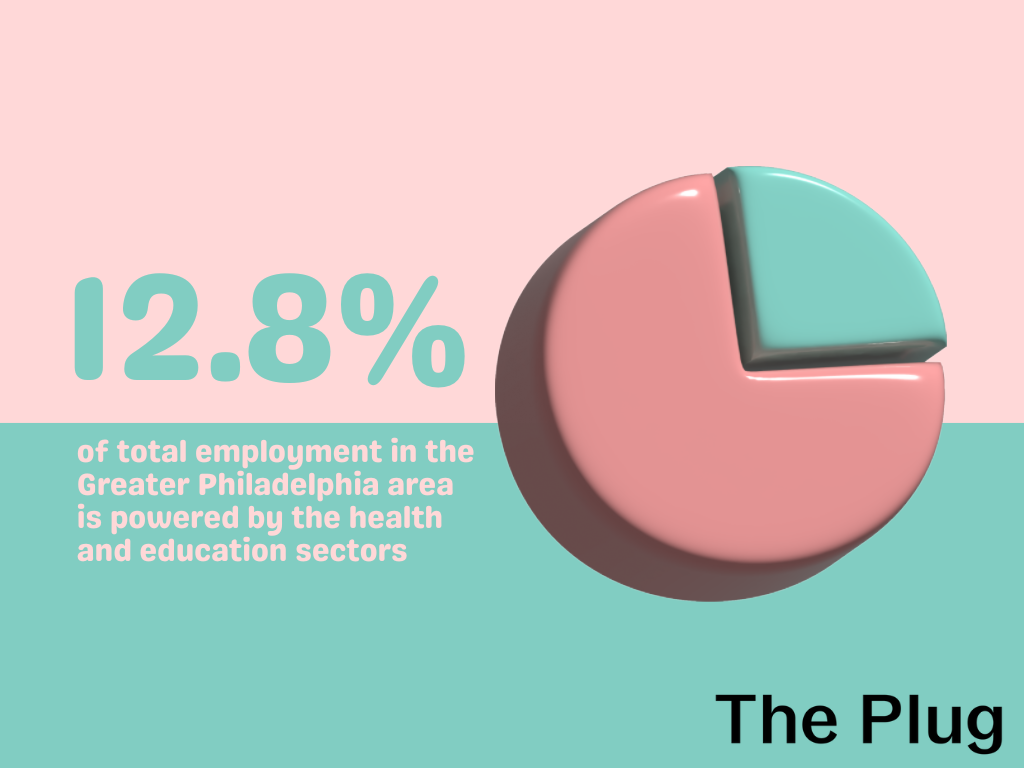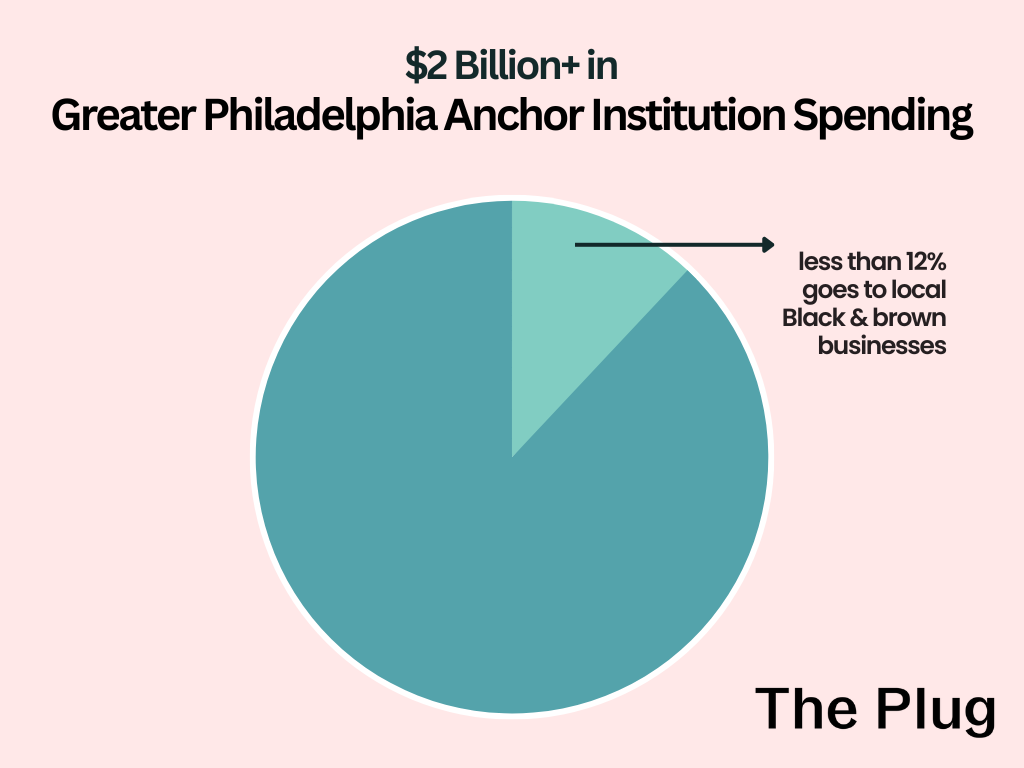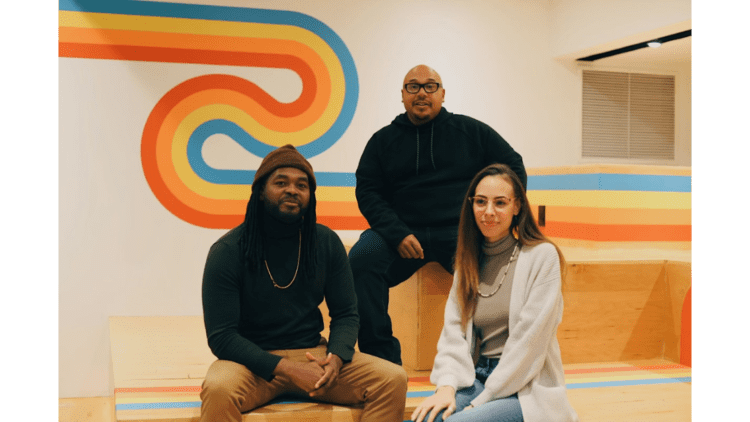By: Alesia Bani | Published on: Nov 17, 2022
KEY INSIGHTS:
- Hospitals and higher education institutions anchor Philadelphia’s regional economy, accounting for about 13 percent of jobs.
- The PAGE initiative was developed to address that only 12 percent of anchor institution spending goes to local Black and brown businesses.
- PAGE provided five grants of up to $25,000 to local businesses to help them secure contracts with local anchor institutions.
Higher education institutions and hospitals have long anchored Philadelphia’s economy as they are inextricably linked to the region. Now, there’s a push to redirect this economic impact into the city’s local Black and brown businesses.
Health care and education institutions, referred to as anchor institutions, are one of the largest employers in the Greater Philadelphia region, accounting for nearly 496,000 jobs or 12.8 percent of total employment, and $33.8 billion or 8.4 percent of total income in the region, according to the Federal Reserve Bank of Philadelphia. The Philadelphia Fed identified 165 hospitals and 179 higher education institutions for the purpose of its report.

But the region’s anchor institutions fall short when it comes to diverse spending.
Annually, they spend more than $2 billion across 19 sectors, but less than 12 percent of this capital goes to local Black and brown-owned businesses in a region where more than half the population is Black and brown. And looking at 34 universities and hospitals in Philadelphia proper, half of the annual $5.3 billion on goods and services is spent outside of the city, according to the Philadelphia Anchors for Growth and Equity (PAGE) initiative.

To address this deficiency, the Economy League of Greater Philadelphia developed the PAGE initiative to increase local purchasing by large institutions. By redirecting just one-quarter of anchor institution spending, the Economy League predicts Philadelphia would see an added 1,250 in manufacturing jobs and 4,000 in indirect jobs.
This year, the PAGE initiative expanded its mission with the Hurdle Fund, a pilot $125,000 fund to provide Black and brown businesses with grants to eliminate small, low-cost hurdles to win new contracts or grow existing contracts with local anchor institutions. Funding came from local philanthropic donations that the nonprofit ImpactPHL helped facilitate.
Grants ranged from $9,000 to $25,000 and were recently dispersed to five local businesses to cover third-party costs such as insurance, equipment or certification. Through the grants, the five businesses have collectively secured over $1.8 million in new revenue through contract opportunities with anchor institutions in the region such as Drexel University, University of Pennsylvania, Temple University, Children’s Hospital of Philadelphia and more.
“It’s exciting to have a tool that allows them to cover some of these small costs without taking on additional debt or losing equity early in the process of growing their business,” PAGE Director Kenyatta James told The Plug.
PAGE has already seen a couple of the businesses scale because of the contracts, but hiring metrics can only be tracked once they reach a 90-day window post-grant.
Anchor institutions have previously had one-off plans to work with local businesses but these disjointed efforts weren’t helping Black businesses grow longevity-wise, so PAGE created a city-wide and regional approach, James explained.
“We get a lot of businesses where they make a great connection at Temple or Drexel or Jefferson, but when that contract is up, if that specific institution does not have additional work, the businesses struggle until the institution has something else,” James said, “It’s not enough to have one or potentially two institutions that know about you and are interested in working with you. You need to be a part of a wider ecosystem if you’re going to see substantial growth.”
PAGE is looking to double the funding amount in the second round of the Hurdle Fund which it is currently in the process of fundraising for.
This disparity in anchor institution spending is not unique to Philadelphia, but Deborah Diamond, director of The Philadelphia Fed’s Anchor Economy Initiative, said Philadelphia is leading “anchor collaborative” efforts to mitigate the gap.
“I think we’ve stayed kind of ahead of the curve around how anchors invest in communities,” Diamond said, referring to other programs like the West Philadelphia Skills Initiative, a workforce development program that connects residents to employment opportunities with anchor institutions.
Effects of the economic downturn
By nature of anchoring regional economies, anchor institutions are also more recession-resistant compared to other industries. Even in economic downturns, they continue to employ residents in the community and purchase products.
“Higher education and health care are counter-cyclical economically and so in downturns, people often return to school and people get their health care regardless, so that’s served Philadelphia well in the past,” Diamond said. “We don’t dip as far as other places in recessions.”
Even with mass layoffs across industries, Diamond predicts Philadelphia’s anchor institutions will weather the looming recession and serve as “strong stabilizers.”
But Philly’s health and education sectors still haven’t recovered all the jobs lost due to the pandemic, with a deficit of about 5,400 jobs, according to an October Economy League report. Diamond said she has heard from leaders in the healthcare sector that on the contrary, they are looking to hire amidst staffing shortages.
PAGE director James also doesn’t see the economic downturn affecting the initiative’s progress in facilitating contracts between anchor institutions and local Black and brown businesses.
“We expect that there will be some cutbacks on spending but it’s billions of dollars that they have to spend every year just to operate,” James said. “Our work will still be necessary and it will still be necessary for diverse businesses to get opportunities as these contracts come up.”
It is clear higher education institutions and hospitals can build up and support commercial corridors in regional economies and programs like PAGE will be crucial in facilitating sustainable partnerships.

Alesia Bani
Alesia Bani is a writer and journalist from Philadelphia and The Plug’s Innovation Reporter covering the Black tech ecosystem in Philadelphia. She previously worked for the Institutional Diversity office at her alma mater Temple University and has a background in reporting on identity, DEI and local government.
Contact: alesia@tpinsights.com




